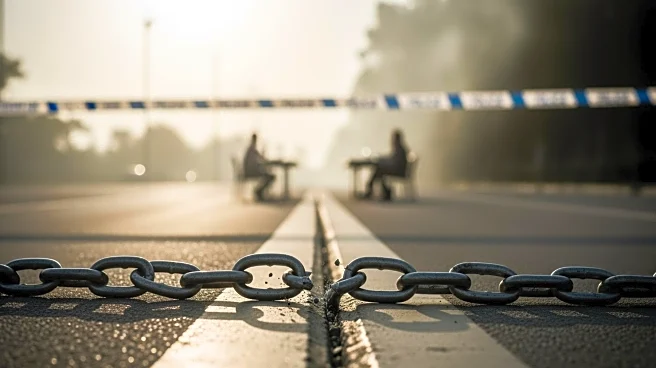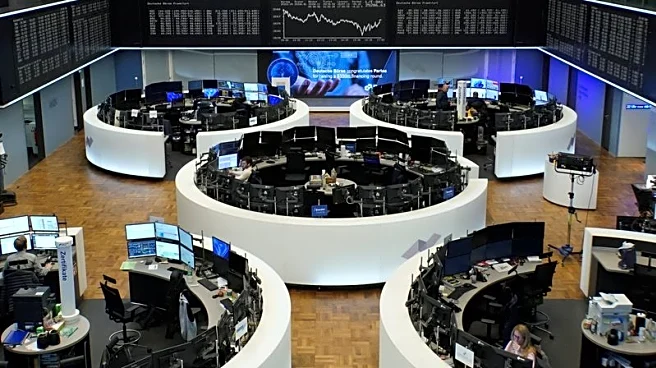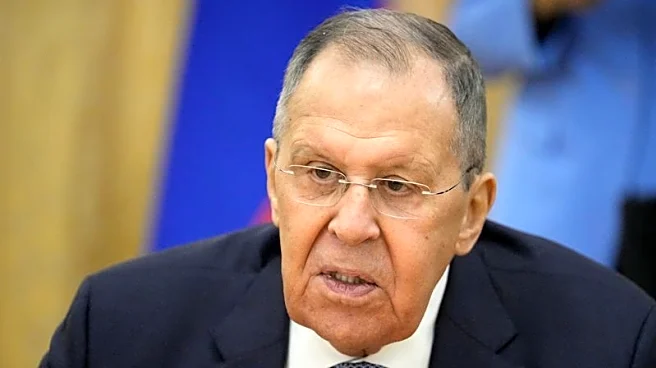What's Happening?
Hamas risks losing control of Gaza if it blocks the next phase of the ceasefire deal. The territory is divided along the 'yellow line,' with Hamas controlling the west and Israel the east. The fragile
balance raises questions about Gaza's future governance and the effectiveness of the ceasefire.
Why It's Important?
The division of Gaza impacts regional stability and the humanitarian situation. It underscores the challenges of implementing ceasefire agreements and achieving lasting peace. The situation affects international perceptions of the conflict and the role of mediators in achieving sustainable solutions.
What's Next?
Further negotiations are expected to address governance and security issues in Gaza. International involvement may be necessary to stabilize the region and ensure compliance with ceasefire terms. The situation remains fluid, with potential for further conflict if agreements are not upheld.
Beyond the Headlines
The division of Gaza raises ethical questions about governance and the role of external actors in managing regional conflicts. It highlights the need for comprehensive solutions that address underlying issues and promote sustainable peace.










